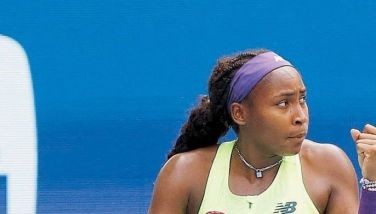A new wheelchair sport
Our differently-abled countrymen often feel limited in their movement, sometimes unable to fully integrate with society. Fortunately, for those confined to wheelchairs, new building regulations require access ramps. Sports have been a great arena for them to grow, compete, find fulfillment, discover purpose, and even represent the country in international competition. Europe, the birthplace of the Paralympics, is a haven for athletically-inclined differently-abled. Begun to attend to the physiological and psychological needs of soldiers injured in World War I, these adapted sports have spread throughout the world.
In the Philippines, the national wheelchair basketball team has proven to be the best in Southeast Asia. Other modified sports like chess for the blind and baseball for the disabled are quite common. There are different categories pertaining to various disabilities in track and field. Now, there is a new sport for our wheelchair brethren: wheelchair tchoukball.
Tchoukball was first created in the 1970’s as a means to practice for handball. Square trampoline-like frames are set up at each end of a court (basketball courts are generally used). The object of the game is to score by bouncing the ball off the frame and letting it bounce outside the three-meter forbidden zone. There are seven players per team. A player can only hold the ball for up to three seconds, and take only three steps while having possession. An attacking team can only make a maximum of three passes before attempting a shot at the frame. A team may attack the frame on either side of the court. The other team must catch the ball before it bounces. No physical contact is allowed, and defense consists mainly of positioning where the ball is anticipated to land.
The wheelchair version has been recognized by the FITB or International Tchoukball Federation, through the initiative of Chiara Volonte, who started the campaign for wheelchair tchoukball as president of the Italian Federation (Federazione Tchoukball Italia).
“Seeing the good that wheelchair tchoukball has done, the international federation has recognized its rules as official, and has asked other nations to accept it,” Volonte told The STAR. “We are happy to share wheelchair tchoukball with the world.”
“Primarily, what fascinated me about this sport is its dynamism, the pace of the sport,” says Andrea Lanza, the pioneering physiotherapist for the Italian wheelchair tchoukball project. “That’s what pushed me into it.”
The modified rules effectively translate the high scoring, fast pace of the original regulations. Instead of three steps, a player can only push the wheels of his or her wheelchair three times before passing or making an attempt. This does not include the push to stop the wheelchair or turn it. The ball is allowed to bounce once during a pass. It is also allowed to bounce once after an attempt and before the other team catches it. A wheelchair’s momentum may carry it only one meter into the forbidden zone before a violation is called.
“The possibility of playing an easily manageable ball, the frames being positioned at the same height as the wheelchair, and allowing bounces allows players with different abilities to play differently on the court,” Lanza adds.
Though it is not the high-flying, physical sport of tchoukball, the wheelchair version is highly tactical and highly technical. Positioning and movement add a different dimension. And there is almost no risk of injury.
Wheelchair tchoukball also has its version of “point given” rules. A point given is when an error by an offensive player results in a score for the opposing team. If a player throws the ball out of bounds with or without hitting the frame, if the ball hits the player who threw it after hitting the frame, or if the ball bounces within the forbidden area during an attempt, all these infractions count as a point for the other team.
The Tchoukball Association of the Philippines (TAP) has discussed adopting wheelchair tchoukball in the country, and pushing to have both versions of the sport included in the 2019 SEA Games. TAP is also planning to build a training center in Bacolod within the next two years. In the meantime, the seed of wheelchair tchoukball is being planted all over the world.
- Latest
- Trending

























